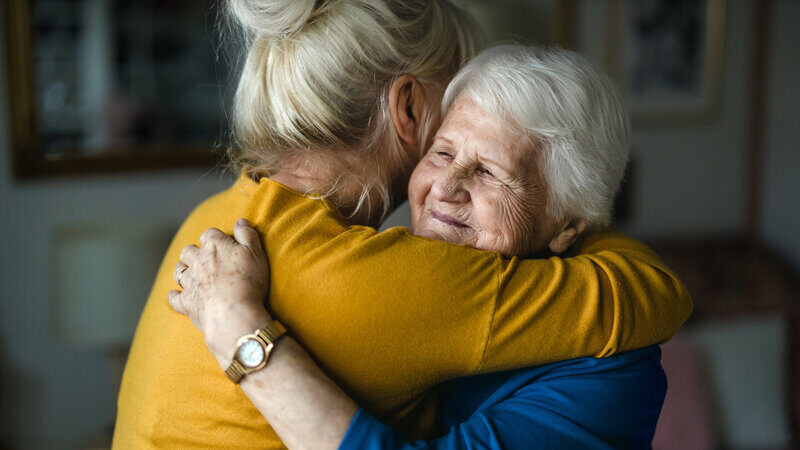
How to Appeal an Adult Dependent Relative Visa Refusal

In This Article
1. What Is the Adult Dependent Relative Visa?
The Adult Dependent Relative visa is a visa category designed for British people, settled people or those with refugee leave, humanitarian protection status, or limited leave under Appendix EU to bring family members in need of care to the UK. This visa is often referred to as the ADR visa. At Richmond Chambers we frequently get calls from people seeking to bring their elderly, ill, or disabled family members to the UK. For the full Immigration Rules on Adult Dependent Relative visas, see Appendix Adult Dependent Relative.
However, the reality is that the refusal rate for Adult Dependent Relative visa applications is very high, even in situations where the application is well prepared. When applying for the ADR visa you must be prepared for the possibility that your initial application may be refused and you will have to appeal the decision, if you still want to come to the UK.
This article explains the common reasons for refusal and how to appeal an Adult Dependent Relative visa refusal.
2. Common Reasons for Adult Dependent Relative Visa Refusals
The Immigration Rules state that to fulfil the requirements of an ADR visa the Applicant must show:
- [T]he applicant, or if the applicant is applying as a parent or grandparent, the applicant’s partner, must be unable to obtain the required level of care in the country where they are living, even with the financial help of the sponsor because either:
- (a) the care is not available and there is no person in that country who can reasonably provide it: or
- (b) the care is not affordable.
This is a very high bar to clear. The Home Office guidance states that care can be provided in the Applicant’s country of residence by:
- [a] son, daughter, brother, sister, parent, grandchild, grandparent, a wider family member, friend or neighbour, or another person who can reasonably provide the care required, for example a home-help, housekeeper, nurse, carer or care or nursing home.
- If an applicant has more than one close family member in the country where they are living, those family members may be able to pool resources to provide the required care.
Therefore, the Applicant must show that none of these options are available or affordable in their country of residence. One of the most common reasons for ADR visa refusal is that the Entry Clearance Officer is not satisfied that the care required by the Applicant is not available in their country of residence.
However, it is possible to have your application rejected for other reasons. For example, the Entry Clearance Officer may not be satisfied that you require long term personal care to perform everyday tasks. Or they may not be satisfied that your Sponsor (your relative in the UK) has the financial means available to maintain you in the UK without recourse to public funds.
It is important to read your letter of refusal carefully to identify the reasons for your refusal.
3. How to Appeal an Adult Dependent Relative Visa Refusal
The good news is that it is possible to appeal the decision to refuse your Adult Dependent Relative visa application. To do so you must lodge an appeal at the First tier Tribunal within 28 days from the date you receive the refusal. It is advised that you seek legal representation if you decide to appeal.
In this process you will be called the Appellant and the Entry Clearance Officer will be known as the Respondent.
The Tribunal will direct the Respondent to serve the bundle on which they will rely for the appeal. The bundle usually includes the refusal letter, application form, and sometimes parts of the evidence submitted with the application.
Next you and your legal representatives will be directed to serve your appeal bundle and appeal skeleton argument. The skeleton argument is a document in which your legal representative sets out the issues and arguments relevant in your appeal. Your bundle will usually include all the evidence you submitted with your application and any new evidence you want the judge to consider.
At this point, the Tribunal will direct the Respondent to review your case. The Respondent may decide to withdraw their initial decision with a view to granting you entry clearance on the ADR visa. However, they may decide to maintain their decision, in which case your case will go to hearing.
4. What to Expect at the Tribunal Hearing
It may be difficult for you to give evidence at the hearing from outside the UK. However, your Sponsor and any witnesses you have in the UK may give evidence by answering questions from your legal representatives, the judge and the Home Office Presenting Officer (the Respondent’s representative at the hearing). Witnesses may also adopt any witness statements they made in support of your application.
After the hearing the judge will make the decision whether to allow or dismiss your appeal. If your appeal is dismissed you may in some circumstances apply for permission to appeal to the Upper Tribunal. You will have 28 days from the date of the judge’s decision. Likewise, if your appeal is allowed the Respondent has 28 days from the date of the judge’s decision to appeal.
Because ADR visa appeals are complex and evidence-heavy, seeking specialist legal advice significantly increases your prospects of success.
5. The Legal Grounds for an ADR Visa Appeal
In the appeal you are required to show that the ECO made a legal error by refusing your application. You may also argue that the refusal breaches section 6 of the Human Rights Act 1998, which states that all public authorities and government departments must act in accordance with human rights, and that the refusal engages Article 8 of the European Convention on Human Rights which protects your right to respect for your private and family life.
In layman’s terms, the appeal is an opportunity to argue against the reasons given in the refusal letter. The judge will make an independent assessment of whether you satisfy the requirements of the immigration rules.
6. Evidence to Strengthen an ADR Visa Appeal
For example, if the ECO was not satisfied that there is no care available in your country of residence it may be useful to include objective evidence such as newspaper articles or NGO reports giving information about the situation in your home country. If the ECO is not satisfied that you require long term care to perform everyday tasks it may be useful to include further medical reports.
It is also useful to provide updated information such as new medical reports to show the development of any illnesses or other health issues, or updated financial evidence from your Sponsor to show that they can still maintain you in the UK without recourse to public funds.
This is very dependent on the circumstances of your individual case, so it is advised that you seek legal advice at this stage. Fresh evidence can often make the difference in whether an ADR visa appeal is successful.
7. Challenging an ADR Visa Refusal at the Upper Tribunal
If your appeal is dismissed you may lodge an appeal to the Upper Tribunal within 28 days of the decision of the First tier Tribunal judge. However, you can only appeal to the Upper Tribunal if the First tier Tribunal judge has made an error of law. This means that the Upper Tribunal will not make an independent decision regarding whether or not you meet the requirements, but they will look at whether the First tier Tribunal judge was entitled to reach their conclusions and whether they applied the law correctly.
If your appeal is allowed there are several possible outcomes. The Upper Tribunal may set aside the First tier Tribunal’s decision and remake it itself with or without a resumed hearing or it may send the case back to the First tier Tribunal for a new hearing with a new judge.
8. Applying for a UK Visit Visa After ADR Refusal
If your Adult Dependent Relative visa is refused this does not preclude you from applying for a visit visa or from attempting to enter the UK with leave as a visitor at the border, if you are a non-visa national. However, the refusal may have an impact because your intentions as a genuine visitor may be questioned.
This is because to be a genuine visitor the Immigration rules require that you intend to leave the UK at the end of your visit. A previous refusal of an ADR application may cast doubt on your intention to leave the UK at the end of your visit, as ADR applications lead to indefinite leave to enter and therefore involve an intention to move permanently to the UK.
However, you can provide evidence that you do intend to leave at the end of your stay with your visit visa application. This is evidence of your ties to your country of residence, such as other family members who live there, any property or sources of income. If you are a non-visa national you may travel with a return ticket and you could get a comfort letter from a legal representative.
9. Contact Our Immigration Barristers
Our specialist barristers regularly advise on Adult Dependent Relative visa refusals and ADR visa appeals. For expert advice and assistance contact our immigration barristers in London on 0203 617 9173 or via the enquiry form below.
10. Frequently Asked Questions
What is the Adult Dependent Relative (ADR) visa?
The ADR visa allows British citizens, settled people, or those with refugee or humanitarian leave to bring elderly, ill, or disabled family members to the UK.
Why are ADR visa applications often refused?
Applications are frequently refused because applicants must prove that the required care is unavailable or unaffordable in their home country, a high legal threshold.
What other reasons might an ADR visa be refused?
Refusals may occur if the Entry Clearance Officer is not satisfied that long-term personal care is needed or that the sponsor can maintain the applicant without public funds.
How can I appeal an ADR visa refusal?
You can appeal to the First-tier Tribunal within 28 days of the refusal, presenting evidence and legal arguments against the refusal decision.
What happens at an ADR visa tribunal hearing?
The hearing may involve evidence from your UK-based sponsor or witnesses, who answer questions from legal representatives, the judge, and the Home Office.
What legal grounds exist for an ADR appeal?
Appeals often argue that the ECO made a legal error or breached human rights under Article 8 of the European Convention on Human Rights.
What evidence strengthens an ADR visa appeal?
Updated medical reports, financial evidence from your sponsor, and objective information about care availability in your home country can help support your appeal.
Can I appeal to the Upper Tribunal?
Yes, but only if you can show that the First-tier Tribunal made an error of law. The Upper Tribunal reviews legal application, not the merits of the case.
Can I apply for a UK visit visa after ADR refusal?
Yes, but previous ADR refusals may cast doubt on your intention to leave the UK. Evidence of ties to your home country can support a visit visa application.
Please note that the information provided in this article is for general guidance only and is based on the immigration rules and policies in force at the date of publication. Immigration law and Home Office policy can change frequently, and requirements may vary depending on individual circumstances. Legal advice should always be sought in relation to your specific situation.







